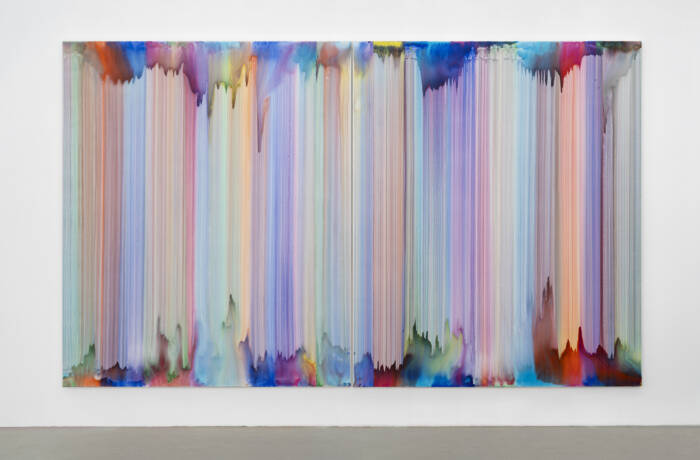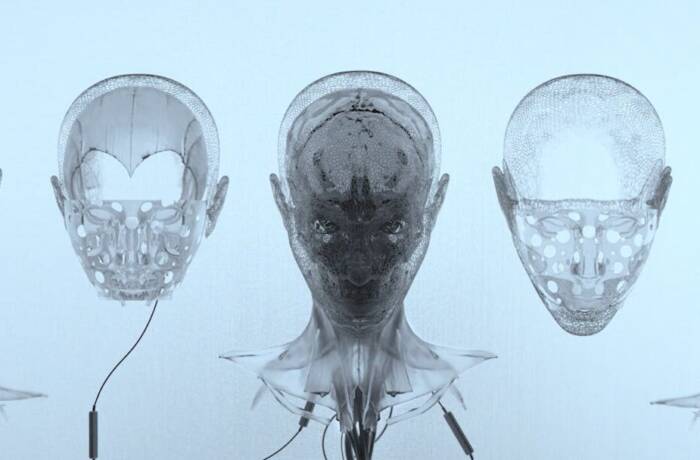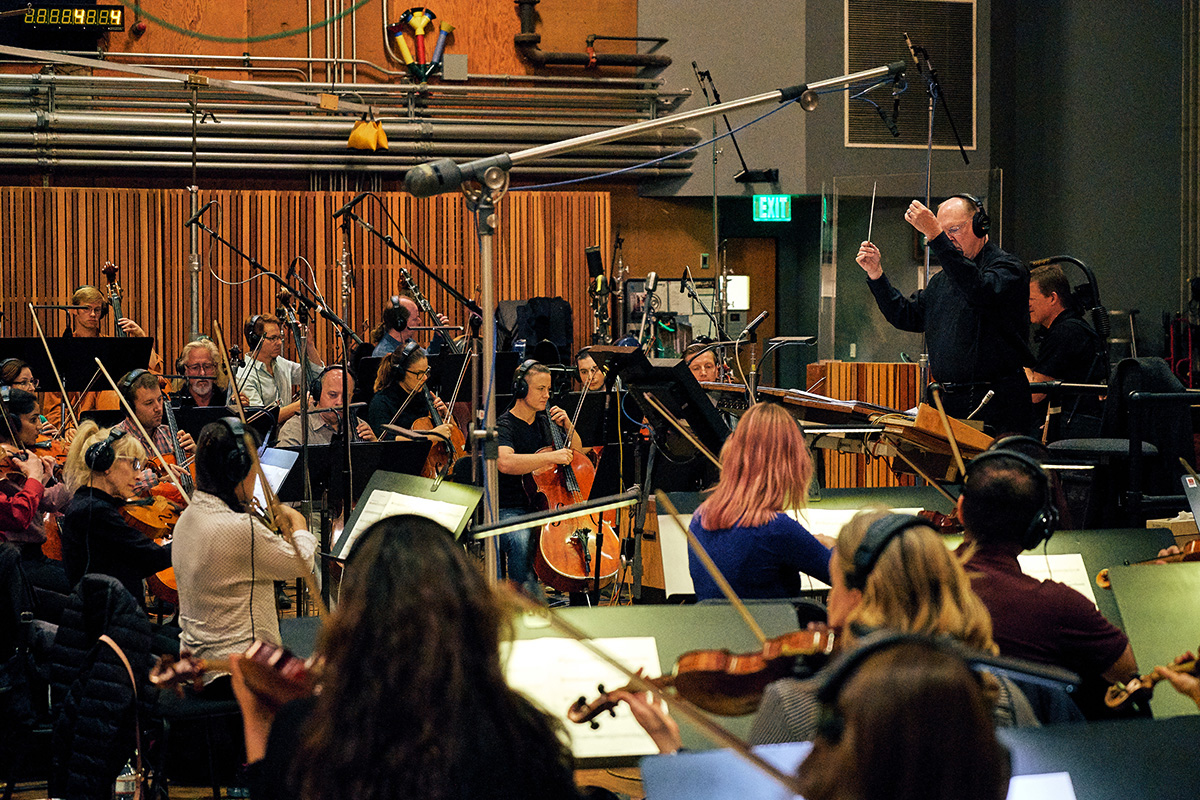
CMG Orchestra in Hollywood performing a piece composed by AIVA. Photo by Lance Bachelder
AIVA AI is an AI music composer which allows people to create their own personalised life soundtracks. Here, LUX speaks to its founder, Pierre Barreau, about the future of AI and its impact on the music industry
LUX: Can you give us some background about your company and why you founded it?
Pierre Barreau: AIVA is a company I started almost seven years ago with my co-founder, whom I met at university. We were both musicians and engineers, and there was a natural inclination to start this company with a focus in both fields. The premise we started with was that, while music is an insanely rewarding thing to do and create, it also requires a lot of time, money, and tools. We believe more people out there should be able to create music and would enjoy it, but they don’t have the time or resources.
Our idea was to bring music creation to the masses: we want to help people who are complete amateurs or be able to create music with technology, as well as assisting professional musicians who may just want an assistant to suggest ideas when they have writer’s block, or need a guiding hand to in their creative process.
Follow LUX on Instagram: luxthemagazine
LUX: You have both a creative and scientific background, from your filmmaking experience to your studies in computer science and engineering. When did you realise it was possible to marry these two fields?
PB: When you do any sizable project, it becomes very obvious that a good director or composer is one who is well-versed in technology. As a film director, you need to deal with camera software to edit the video you are shooting, you need to deal with lighting. For music creation, it is a bit more nuanced; of course, you can write music with pen and paper, but some of the most prolific music creators these days use their laptops to create music or synthesisers to create music digitally.
You open yourself up to the realm of possibilities if you consider technology as a creative partner when creating music. There is sort of no way, in my opinion, you can be an effective composer or director if you completely shut off technology.

Pierre Barreau
LUX: How would you respond to claims that AI is going to devalue the work of human beings, especially in the creative industries where job security is an issue?
PB: It is an important question; whenever you have a technology that raises the bar for what people are able to do in terms of creating music, it can be a bit scary. But what I would say is that historically there have been other technical advances that have brought music-making to the masses, and these have not reduced human creativity. In fact, they have supercharged it.
When the synthesiser was created, people were very scared that it was going to replace acoustic instruments and that it was going to lead to this world of digital, horrible sounding music. Instead, what it created was a world where we have new genres of music like hip-hop and electronic music. Another example is the invention of the digital audio workstation. It allowed people from their bedrooms to become producers so they didn’t need to hire expensive studios to record their music.
LUX: Can you tell us about your vision to create a personalised life-soundtrack for every person?
PB: I think the interesting thing is using AI to do what we can’t do as humans right now. One such thing is this idea of personalised soundtracks; let’s say you are going running and you want music tailored to your own performance or to stimulate you for the extra mile. Then imagine an AI that could compose what you need based on your own rhythm.
I think that would be a hugely powerful thing to have for very different industries, in this case, running, video games, and interactive content that have a lot of diversity in the gameplay and the stories that they tell, but the music tends to stay the same. Just being able to generate the music as the player moves through the game and the experience, and help them create their own story, can enhance the experience they are having.
LUX: Do you ever think this tool could ever be a danger to society? Could people use it as a means to cause damage?
PB: I don’t think I am worried about the directly manipulative aspects of AI, specifically in music. There could be a lot more said in other domains, like the audio, text and visual domains.
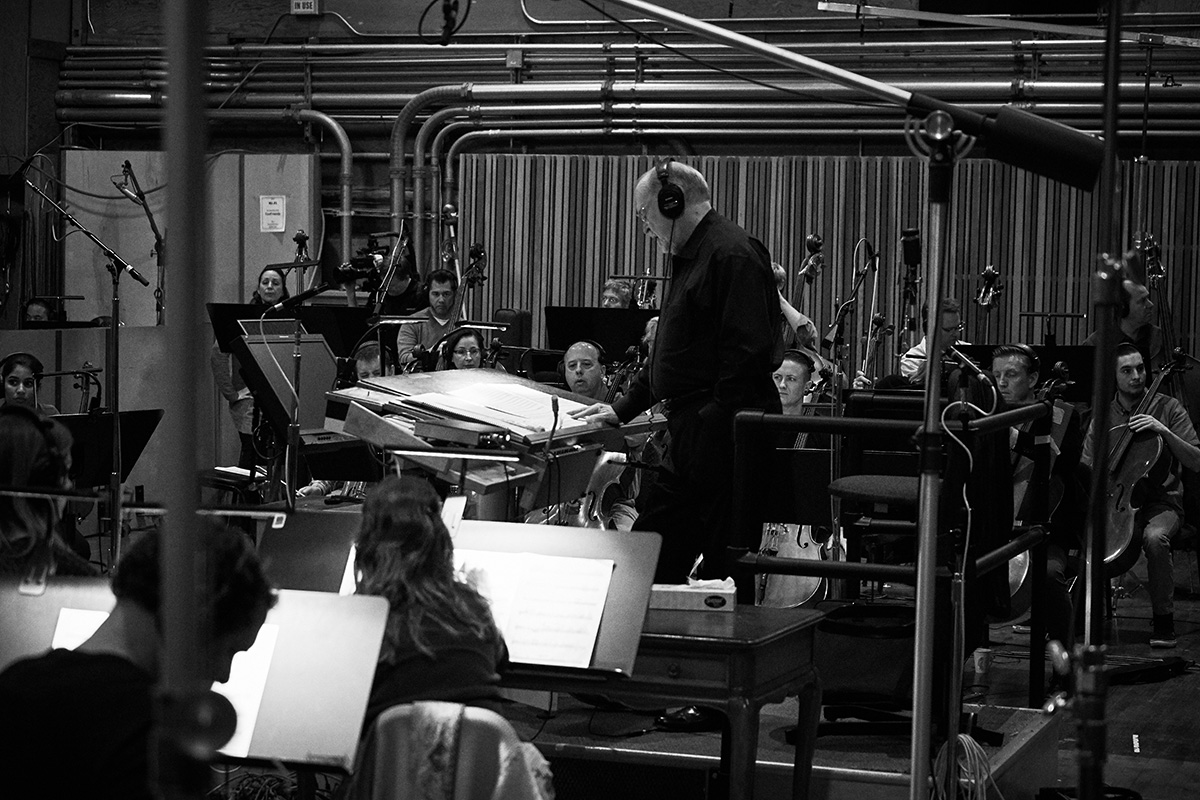
CMG Orchestra in Hollywood performing a piece composed by AIVA. Photo by Lance Bachelder
I think one potential challenge that could be very real is giving powerful tools to those whose intentions are just to flood the market and devalue music by humans. But I think that, fundamentally, human music operates on a completely different set of parameters. We go to concerts not to see a computer performing music but a performer dances, has a show and tells us about their own personal life story through their lyrics. People connect to stars because of their own personal drama and the story surrounding them. I think for that reason, It is more about the economic side, not about manipulation, despite what many depictions of AI would have you think.
LUX: Do you think we could ever get to a point where AI could compose a piece of musical genius, or would they always need human input to do this?
PB: In my opinion, whether we call someone a genius tends to be determined by two things. Firstly, the personal; some people will argue certain composers are geniuses, whilst others will argue totally the opposite. It depends on taste. Secondly, there is hindsight, like how we celebrate composers of the past who weren’t appreciated in their time. I think one of the reasons for that is because, in order to create something which is truly genius, you have to be ahead of your time. It won’t be appreciated immediately, but people will learn.
I think with AI , the aim is to create something humans appreciate now – that’s kind of the point. I am not sure anyone will be able to connect to something that an AI creates that we can’t appreciate now. That is also part of the reason why I am hopeful there will still be human creativity, because we can really only connect to something that pushes the boundaries if it is created by humans, if there is a story behind it. Otherwise, it may be devoid of meaning. But as far as creating something that is exceptionally good in terms of quality, I think AI can definitely do this.
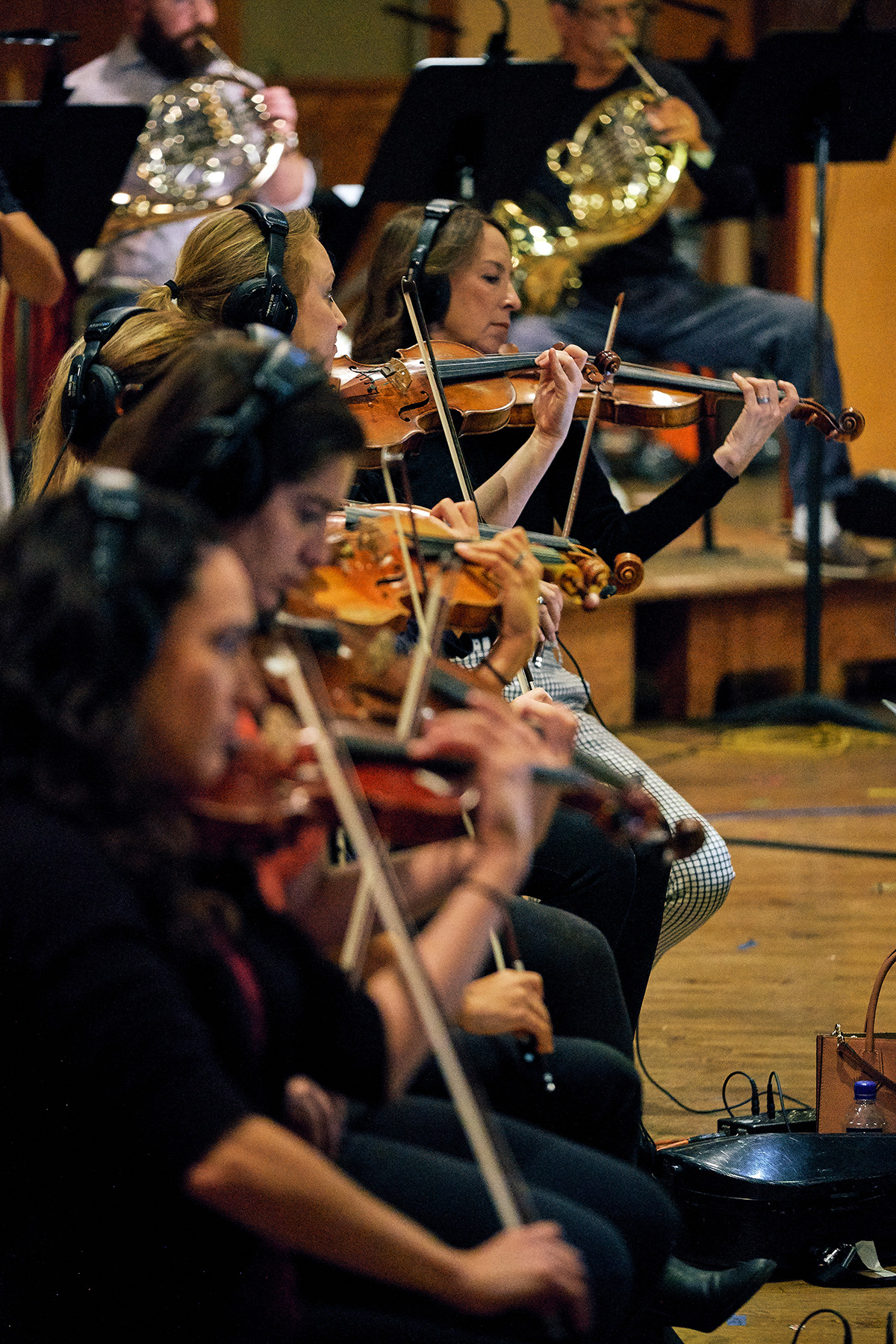
CMG Orchestra in Hollywood performing a piece composed by AIVA. Photo by Lance Bachelder
LUX: How do you imagine an amateur would use your service, and how is this different to the way a professional musician might use it?
PB: For amateurs, the AI will help them to create a composition. Maybe they will modify the composition to better fit what they have in mind, or swap an instrument, add a little bit of musical effects, or switch a few notes here and there. But fundamentally, they will be equal partners, with the AI as writers.
Professionals may use more in-depth features like providing their own musical material instead of letting the AI generate compositions based on that. In general, Making a more in-depth modification of the material is usually the difference between the two.
LUX: Will AI be able to create experimental music like the kind that has never been heard before, or would it always be taken from what’s already existed?
PB: It is very possible to do something that does not exist. But again, we go back to this idea of being able to appreciate what pushes the boundaries, and I think it is harder for humans to appreciate something that is truly out there if it is created by a machine. Whereas, if it is created by humans, it is easier to find a way to connect to the story behind it, which leads you to appreciate this novel idea. Whilst it is functionally possible to do it, I don’t think it creates as much value as when a human does it.
Read more: Deutsche Bank’s global innovators meet in Silicon Valley
LUX: Do you think musicians today are welcoming this kind of innovation, or do you anticipate any backlash to this? What responses have you received so far?
PB: Both. Some people are extremely enthusiastic, even some professional composers that see it as an extension of their own abilities, as a tool. And then there are some people who are completely against it. Looking back at previous technological innovations, it is pretty much the same as before. There tends to be a change of opinion when people try it. Once they begin to try the software, they quickly realise it is just a tool. But when you just talk about AI music on a high-level, conceptual basis, people might be more inclined to fill in the blanks and think the technology is something that it actually isn’t, or does something that it actually can’t do. And so, for that reason, the feedback tends to be quite positive when people tend to use the product themselves instead of discussing high-level concepts.
Find out more: aiva.ai
All photos courtesy of AIVA AI


